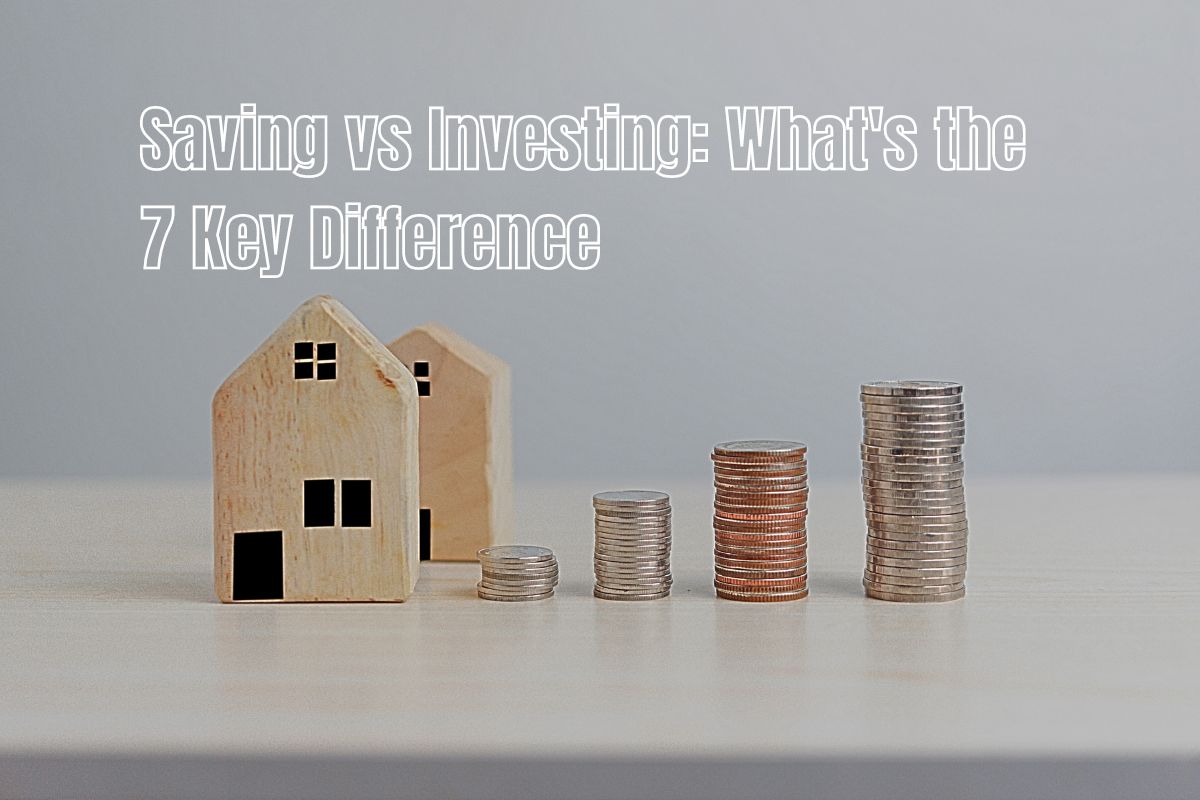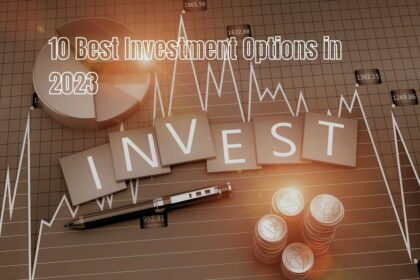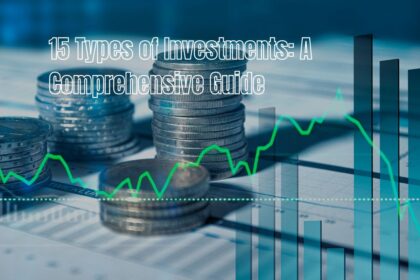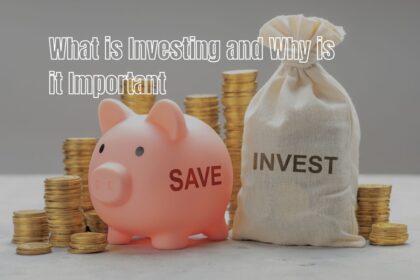Introduction
In personal finance, two commonly used terms are Saving vs Investing. While they may seem similar, they have distinct differences in purpose, time horizon, and potential returns. Understanding these differences is crucial for individuals who want to make informed decisions about managing their money. This article will explore the key disparities between investing and saving and how they can impact your financial goals.
Definition of Investing
Investing refers to allocating money to generate income or profit over time. It involves purchasing assets such as stocks, bonds, real estate, or mutual funds to appreciate capital or earn income through dividends or interest.
Definition of Saving
Saving, however, involves setting aside a portion of your income for future use. It typically entails depositing money into a savings account, money market account, or a certificate of deposit (CD) to preserve capital and provide easy access to funds when needed.
Purpose and Goals
Building Wealth: Investing
The main purpose of investing is to build wealth over the long term. By investing in assets that have the potential to grow in value or generate income, individuals aim to increase their net worth and achieve financial goals such as retirement, education funding, or buying a home.
Short-Term Meeting Needs: Saving
On the other hand, saving is primarily focused on meeting short-term needs and emergencies. It serves as a financial safety net, providing funds for unexpected expenses or planned purchases that are relatively near in the future, such as a vacation or a down payment for a car.

Time Horizon
Long-Term Perspective: Investing
Investing typically has a longer time horizon, often spanning several years or even decades. It allows individuals to take advantage of compounding returns and the potential for significant growth over extended periods. Long-term investments like National Pension Scheme (NPS) have the opportunity to recover from market downturns and benefit from the overall upward trajectory of the economy.
Short-Term Perspective: Saving
Saving, on the other hand, focuses on short-term goals and needs. It involves setting aside money for expenses arising within a few months or years. Since savings are typically kept in easily accessible accounts, individuals can quickly access the funds when required.
Risk and Return
Potential Returns: Investing
Investing carries a certain degree of risk due to market fluctuations and the possibility of losing money. However, it also offers the potential for higher returns compared to saving. Investments with higher risk levels, such as stocks or real estate, have historically generated higher long-term returns, although past performance does not indicate future results.
Limited Returns: Saving
Saving, on the other hand, offers limited returns compared to investing. Traditional savings accounts and other low-risk options like CDs usually provide interest rates that are relatively lower than the potential returns from investments. However, saving provides stability and security, making it a suitable choice for short-term goals or those who prefer a more conservative approach to managing their money.
Liquidity
Access to Funds: Saving
Saving provides high liquidity as the funds are readily available for withdrawal. Savings accounts, money market accounts, or cash equivalents allow individuals to access their money quickly without any penalties or restrictions. This flexibility is particularly useful in emergencies or when immediate financial needs arise.
Restricted Access: Investing
Investing generally involves restricted access to funds. Depending on the type of investment, there may be limitations or penalties for withdrawing money before a specified time or reaching certain conditions. Certain investments, such as retirement accounts, are subject to tax penalties for early withdrawals, encouraging individuals to maintain a long-term perspective.

Inflation and Taxes
Inflation Protection: Investing
Investing can provide a hedge against inflation. Over time, the returns generated by investments can outpace the inflation rate, helping to preserve and increase the purchasing power of the invested funds. Certain assets, such as stocks and real estate, have historically shown the ability to provide returns that surpass inflation.
Tax Considerations: Saving
Saving often involves tax considerations. Interest earned from savings accounts or CDs is typically subject to income tax. However, some savings vehicles, like retirement accounts or certain government-sponsored savings plans, offer tax advantages or incentives, providing individuals with opportunities to save on taxes.
Diversification
Spreading Risk: Investing
Investing allows for diversification, which means spreading investments across different asset classes, sectors, or geographic regions. Diversification helps mitigate the risk of loss by reducing exposure to a single investment. By allocating investments across various options, individuals can minimize the impact of poor-performing assets on their overall portfolio.
No Diversification: Saving
Saving does not offer diversification benefits. Funds held in savings accounts or low-risk instruments are typically not exposed to different assets or investment types. While this lack of diversification ensures stability, it limits the potential for higher returns that diversified investments can offer.
Professional Guidance
Investment Advisors: Investing
Investing often requires professional guidance. Investment advisors, such as financial planners or wealth managers, can provide expertise and personalized recommendations based on an individual’s financial goals, risk tolerance, and investment horizon. They help individuals create investment portfolios tailored to their specific needs and objectives.
Financial Planners: Saving
Financial planners or advisors are also valuable when it comes to saving. They can assist individuals in creating comprehensive savings plans, identifying the most suitable savings vehicles, and optimizing tax-efficient strategies. Financial planners work closely with clients to ensure their savings align with their short-term goals and provide guidance on maximizing returns within the scope of conservative investment options.
Conclusion
In summary, investing and saving are distinct approaches to money management, each with its purpose and benefits. Investing aims to grow wealth over the long term, providing potential for higher returns and carrying higher risks. On the other hand, saving focuses on short-term needs and emergencies, offering stability and easy access to funds. Both investing and saving play essential roles in achieving financial goals, and individuals should consider their financial objectives, time horizon, risk tolerance, and liquidity needs when deciding how to allocate their money.
FAQs (Frequently Asked Questions)
What is the difference between Saving vs Investing?
Investing involves allocating money with the expectation of generating income or profit over time, aiming for long-term growth and higher returns. On the other hand, saving focuses on setting aside money for short-term needs and emergencies, prioritizing stability and easy access to funds.
Which option is better, Saving vs Investing?
The choice between investing and saving depends on individual financial goals, time horizons, risk tolerance, and liquidity needs. Both options have their advantages and should be considered based on personal circumstances.
Can I do Saving vs Investing at the same time?
Yes, it is possible to invest and save simultaneously. Many individuals allocate a portion of their income to both investments and savings to balance long-term growth with short-term financial needs.
Are investments always risky?
Investments carry a certain degree of risk due to market fluctuations. However, the level of risk varies depending on the type of investment. Some investments have higher risk levels, while others, such as government bonds, carry lower risks.
Should I seek professional advice for Saving vs Investing?
Seeking professional advice from investment advisors or financial planners can provide valuable insights and guidance tailored to your financial situation and goals. They can help you make informed decisions and optimize your investment and saving strategies.













